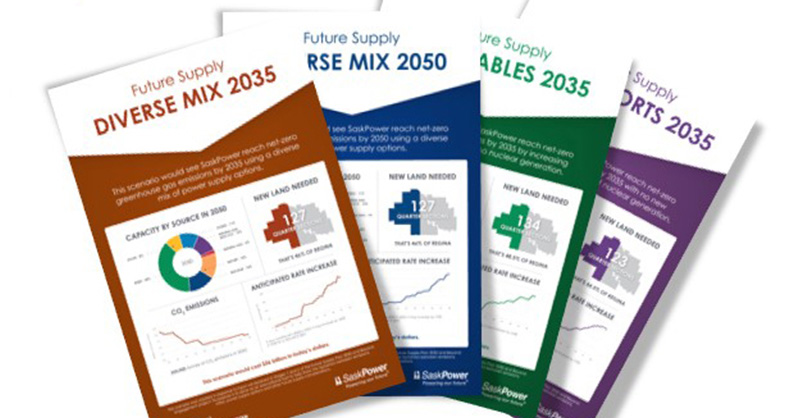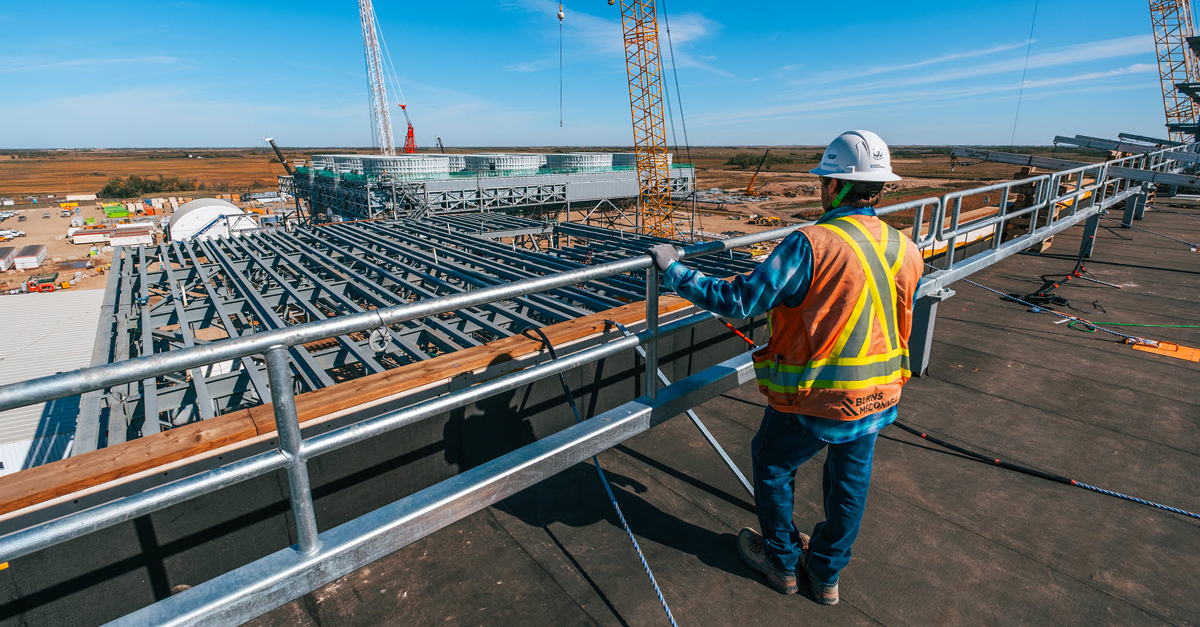Exploring the Future of Our Power Supply: Scenarios to Consider
November 22, 2023

Quotables:
- We’ve been seeking input on how we power the province since 2022. Using your input, we created 4 scenarios that show what our future power system could look like.
- Watch the 4 scenarios unfold from 2023 to 2050 to learn about the pros and cons of different paths forward.
- Be sure to take the Stage 3 survey for a chance to win one of 10 $250 VISA gift cards!
We’ve been seeking input on how we power the province since 2022. In Stages 1 and 2 of this process, we gathered public input on values, priorities, and preferred power supply options.
Using your input, we created 4 scenarios that show what our future power system could look like. Each scenario responds to questions asked by participants in Stage 1 and 2 and serves as an educational tool to help show the dynamics between emissions, rates, reliability, power supply options and other future supply considerations. Now, you can watch the 4 scenarios unfold from 2023 to 2050 to learn about the pros and cons of different paths forward. After you’ve got your fill, be sure to complete our Stage 3 survey for a chance to win one of 10 $250 VISA gift cards!
“What’s your plan to keep power bills affordable while reducing emissions?”
The Diverse Mix 2050 scenario is characterized by the goal of achieving net-zero greenhouse gas (GHG) emissions by 2050 through a diverse mix of power supply options. The highlights include:
- It uses a lot of wind and solar with a balance of hydro, nuclear, natural gas with carbon capture and storage (CCS) and imports
- Compared with the other scenarios it reduces stress on supply chains and allows more time for technology development
- It’s unlikely to comply with federal regulations
- It would cost about $53 billion in today’s dollars to realize
- The anticipated generating capacity is 10,758 megawatts (MW)
Watch Diverse Mix 2050 unfold:
“What could net zero by 2035 look like?”
The Diverse Mix 2035 scenario is characterized by the goal of achieving net-zero GHG emissions by 2035 through a diverse mix of power supply options. The highlights include:
- It uses a lot of wind and solar with a balance of hydro, nuclear, natural gas with carbon capture and storage (CCS) and imports
- It would cost about $56 billion in today’s dollars to realize
- The anticipated generating capacity is 10,708 MW
Watch Diverse Mix 2035 unfold:
“What if you maximized wind and solar resources?”
The Renewables 2035 scenario is characterized by the goal of achieving net-zero GHG emissions by 2035 by increasing renewable options with no nuclear generation. The highlights include:
- It uses increased wind, solar and imported power
- It relies on increased transmission interconnections with our neighbours for reliability, to balance increased wind and solar, and to access dispatchable imported power
- Adds a new hydro facility earlier than other scenarios
- No nuclear generation — GHG reductions are realized through renewables paired with dispatchable generation
- It would cost about $57 billion in today’s dollars to realize
- The anticipated generating capacity is 11,677 MW
Watch Renewables 2035 unfold:
“What if you reduced imported power and relied on in-province generation?”
The Low Imports 2035 scenario is characterized by the goal of achieving net-zero GHG emissions by 2035 with no new import contracts leading to significant nuclear generation. The highlights include:
- It results in increased nuclear power — 31% nuclear by 2050
- Increased transmission interconnections with our neighbours are still necessary for reliability, to support renewables, and to provide a path for excess energy from nuclear facilities in times of low provincial demand
- Counts on fewer technologies
- It would cost about $57 billion in today’s dollars to realize
- The anticipated generating capacity is 10,294 MW
Watch Low Imports 2023 unfold:
Learn more:




